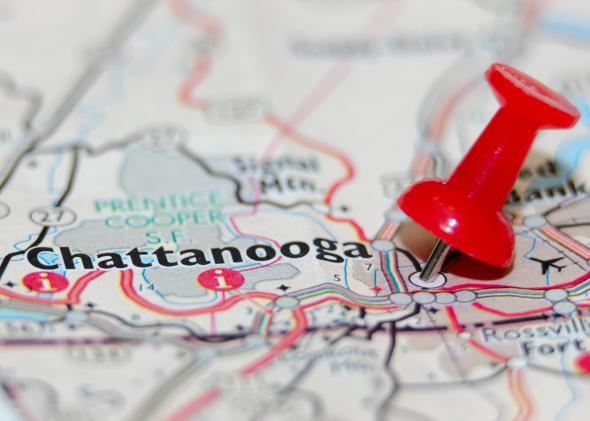On Thursday, voters in Chattanooga, Tennessee, decisively voted down a city ordinance that would have extended certain protections for LGBT workers. The original measure, passed by the city council in 2013, was intended to protect city employees from anti-LGBT discrimination and to extend health benefits to their same-sex partners. (Gay marriage remains illegal in Tennessee.) But Chattanooga residents voted 13,685 to 8,184 to repeal the ordinance, thereby denying LGBT city employees these exceedingly basic protections.
I wouldn’t really expect a medium-sized city in Tennessee to be a bastion of gay tolerance, and Chattanoogans’ resolute rejection of LGBT rights doesn’t surprise me at all. But the Chattanooga defeat is noteworthy in light of this week’s marriage equality hearings at the 6th Circuit, at which Tennessee’s gay marriage ban was challenged. During the arguments, conservative-leaning swing vote Judge Jeffrey Sutton pointedly criticized the gay rights movement for failing to pursue more democratic routes. According to Sutton, state legislatures and referendums—not the courts—are the ideal vehicles for gaining civil rights. In his most discomfiting monologue, Sutton lectured one lawyer:
I would’ve thought the best way to get respect and dignity is through the democratic process. Forcing one’s neighbors, co-employees, friends, to recognize that these marriages, the status deserves the same respect as the status in a heterosexual couple. … If the goal is to change hearts and minds … isn’t it worth the expense? Don’t you think you’re more likely to change hearts and minds through the democratic process than you are through a decision by five justices of the U.S. Supreme Court?
In Chattanooga, gay rights groups pursued the democratic process and tried to change hearts and minds—and they lost overwhelmingly. Pace Sutton’s slightly condescending optimism, the LGBTQ movement has largely run out of democratic options; aside from passing a federal non-discrimination law, the rest of its major victories will likely be confined to the courtroom. Luckily for gays in Tennessee, their next battle won’t be decided by Chattanooga voters, but by the justices of the Supreme Court. And I have a sneaking suspicion that at least five of them will be sympathetic to the cause.
